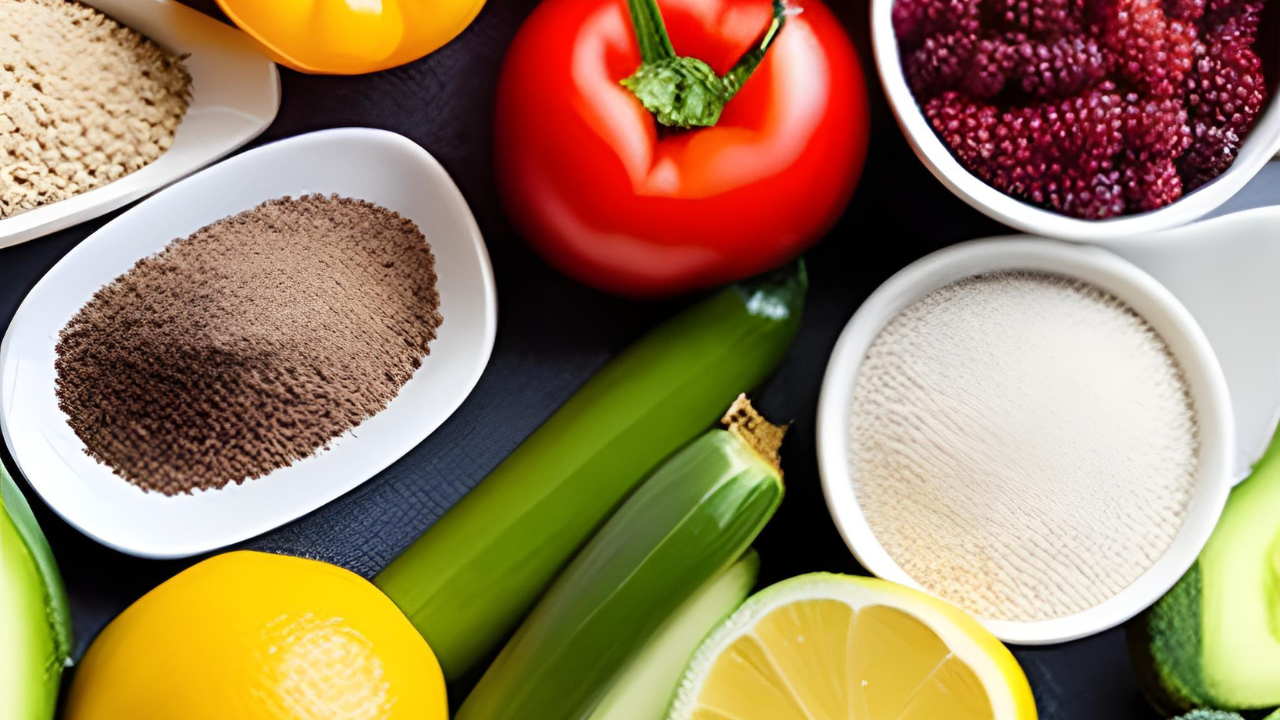Brain Inflammation: Spectacular Tips And Strategies For Better Brain Health

Brain Inflammation-Spectacular Tips And Strategies For Better Brain Health
What is Brain Inflammation?
Brain inflammation, or neuroinflammation, happens when your brain’s injured or ill and your immune system responds by causing swelling to protect it. This inflammation can fundamentally affect wellbeing and generally mental capability.
So when these protective measures go into overdrive due to injury or infection, they might backfire, leading to issues with memory and fatigue.
Brain inflammation can stem from a bunch of different things— infections, taking a hard hit to the head, your own immune system going rogue, or even just breathing in harmful chemicals. It messes with you in various ways; maybe it’s constant headaches, forgetting stuff all the time, feeling totally drained, getting snappy—or having a tough time keeping your thoughts sharp and clear.
Causes and Symptoms of Brain Inflammation
Many factors can spark brain inflammation, like infections—think meningitis or encephalitis—or autoimmune conditions such as multiple sclerosis. It’s not just physical injuries; even environmental pollutants and certain medications can provoke it.
Brain inflammation’s symptoms can be as mild as headaches or mood changes, but they don’t stop there. If things get worse, you might find yourself completely drained and grappling with memory breaks or trouble concentrating. In serious cases, people might encounter seizures, dreams, and even unconsciousness.
The Impact of Brain Inflammation on Brain Health
Inflamed brains throw a wrench in our mental machinery, knocking the crucial chemical balance out of whack and clouding our thoughts and moods. This kind of swelling dulls memory recall and scatters focus, acting as a gatekeeper against some heavy-duty psychological challenges.
Keeping inflammation under control is more than essential—it’s our defense strategy to maintain sharp cognitive function and sidestep frightening health threats that loom over us.
Battling constant chronic brain inflammation is vital; it’s associated with awful conditions like Alzheimer’s, Parkinson’s Sickness, and Numerous Sclerosis. By staying on top of this issue, we dodge serious mental health troubles—think depression or anxiety—that could crop up if we let our guard down. So really, keeping that inflammation in check isn’t just good practice—it’s a defense strategy for maintaining a healthy mind.
Tips for Reducing Brain Inflammation
Keeping your brain sharp and inflammation-free is crucial, so why not tweak your meals to pack in anti-inflammatory powerhouses? Balance that with solid sleep, smart stress-busting habits, and staying active for a top-notch head.
Maintain a Healthy Diet: Eating foods packed with antioxidants and omega-3s, like berries and salmon, can calm brain inflammation. Load up on fresh produce, eat on omega-rich fish, and snack on a mix of nuts and seeds to fight off that brain inflammation—just steer clear of those ultra-processed snacks, sugary sips, and too much alcoholic drink.
Manage Stress: Chronic stress can contribute to inflammation in the brain. To manage stress, carve out moments for mindfulness or hobbies that bring you joy. Carving out moments to unwind, even briefly during a hectic day, can significantly dial down stress levels.
Get Quality Sleep: Bagging a solid 7 to 9 hours of sleep each night can be your brain’s secret weapon against inflammation and keep it razor-sharp. Aim for 7-9 hours of quality sleep each night. Establish a regular sleep routine, create a comfortable sleep environment, and avoid stimulants such as caffeine before bedtime.
Strategies for Preventing Brain Inflammation
Prevention is key when it comes to brain inflammation Dive into routines that promote a clear mind, from balanced eating to regular exercise—these are non-negotiables for cognitive fitness.
Protect Your Head: Protect your noggin – strap on a helmet for risky stuff like biking or rough sports. Make sure your space is slip-proof and grab bars are in place to help keep older adults safe from tumbles.
Practice Good Hygiene: Infections can lead to brain inflammation. Stay vigilant with personal cleanliness—make it a habit to wash your hands often, steer clear of folks who are under the weather, and keep your shots up to date.
Limit Exposure to Toxins: Minimize your exposure to environmental toxins that can contribute to brain inflammation. To minimize exposure to toxins that can harm your brain, use natural cleaners, avoid smoking and secondhand smoke, and limit chemicals in home and personal products.
Foods that Reduce Brain Inflammation
Certain foods have anti-inflammatory properties and can help reduce brain inflammation. Incorporate the following foods into your diet:
Blueberries: Packed with antioxidants, blueberries have been shown to reduce inflammation and improve brain function.
Fatty Fish: Salmon and sardines, loaded with omega-3s, act like a relief for your brain’s inflammation.
Turmeric: Curcumin, the dynamic ingredient in turmeric, not only calms inflammation but also gives your brain health a serious boost.
Lifestyle Changes to Support Brain Health
In addition to diet, certain lifestyle changes can support brain health and reduce inflammation:
Exercise Regularly: Engaging in regular physical activity has been shown to reduce inflammation and promote brain health. Shoot for clocking in 150 minutes each week doing stuff like brisk walking or cycling to keep your brain sharp and inflammation at bay.
Manage Chronic Conditions: Manage Chronic Conditions working with your doctor can help get things under control. Managing your health conditions well can lower inflammation and boost your brain’s wellbeing.
Stay Mentally Active: Keep your brain engaged by participating in mentally stimulating activities such as puzzles, reading, learning new skills, or engaging in hobbies that require cognitive effort.
Supplements and Natural Remedies for Brain Inflammation
Certain supplements and natural cures might assist with lessening brain inflammation and backing brain health. But remember to touch base with your healthcare professional before kicking off any new health kicks. Options on the table range from omega-3s that cool out inflammation to curcumin, which comes straight from turmeric and packs a punch against swelling in the brain.
Omega-3 Fatty Acids: Omega-3 supplements, such as fish oil or algae-derived supplements, have anti-inflammatory properties and can support brain health.
Curcumin: Curcumin supplements derived from turmeric can help reduce inflammation in the brain.
Resveratrol: Resveratrol, that stuff in red wine and grapes, might just be a brain’s best friend—think of it as your grey matter’s personal bodyguard against damage.
Exercise and Brain Health
Regular exercise not only benefits physical health but also plays a crucial role in brain health. When you work out, you’re not just getting ripped; you’re also knocking out inflammation, boosting circulation to your head, and encouraging the growth of fresh brain cells. Mix up your workouts with some cardio, hit the weights, and mix up in brain games to keep both body and mind sharp.
Conclusion: Taking Steps Towards Better Brain Health
In this way, assuming you believe your brain should remain in prime condition, it’s tied in with nailing those everyday habits and making the most of decisions that matter. Think of it as strategy for the mind—every smart move you make is a win for your mental fitness.
Managing brain inflammation protects your head and keeps you sharp. make lifestyle changes to support brain health and consider natural supplements under the guidance of a healthcare professional.
Through focusing on brain well-being, you can handle your general health and remain mindful of ideal psychological well-being all through your life.
Call To Action: Assume responsibility for your brain well-being today by carrying out these tips and methodologies.
Keep in mind, little changes can have a major effect in lessening brain inflammation and advancing long haul mind well-being.
RELATED POSTS
The Secret to a Vibrant Old Age? Strengthening Your Muscles!
Imagine being able to chase after grandkids or carry groceries without breaking a sweat—regular exercise makes this dream a reality for many older adults, fostering independence and enhancing quality of life.
Discover 10 Healthy Eating Ideas for the Best Nourishing Lifestyle
Good diet is the foundation of healthy living. The grub we opt for is not merely a play of flavors. Healthy eating doesn’t require restrictive diets or sacrificing favorites.
Discover the Best Pre-Workout Supplements for Optimal Performance
As a committed fitness lover, you continually look for ways of enhancing your exercise execution. One effective system is the utilization of pre-workout supplements.
FOLLOW DISCOVERY BLOGGER









0 Comments